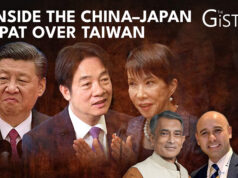Germany’s far-right party, Alternative for Germany (AfD), filed a legal complaint on Monday against the domestic intelligence agency’s recent decision to label the party as an extremist organization.
A spokesperson for the administrative court in Cologne said the lawsuit and a corresponding emergency petition had been submitted, both of which would be reviewed once the BfV domestic intelligence agency had confirmed that it had been notified.
The extremist classification announced on Friday allows the spy agency to step up monitoring of the AfD, for example by recruiting informants and intercepting party communications.
The agency’s 1,100-page experts’ report, which is not to be released to the public, found the AfD to be a racist and anti-Muslim organisation.
The AfD placed second in a parliamentary election in February with nearly 21% of the vote, making it the biggest opposition party in parliament. Centre-right leader Friedrich Merz is due to take office as chancellor on Tuesday at the helm of a coalition including the centre-left SPD.
Germany has strong laws against political extremism, under what the authorities have long viewed as a particular responsibility, arising from the country’s Nazi past, to safeguard democracy.
Extremist Status Is Politically Motivated?
The AfD says its designation as extremist is a politically motivated attempt to discredit and criminalize it.
The incoming government will review whether to launch an attempt at an outright ban of the party, Lars Klingbeil, leader of the SPD said last week.
Senior members of the Trump administration in the U.S. have denounced the AfD’s classification as extremist, with Secretary of State Marco Rubio saying Germany should reverse course. President Donald Trump’s close ally Tesla billionaire Elon Musk has campaigned vocally in support of the AfD.
Moscow on Monday joined Washington in criticising the extremist classification of the AfD, which opposes German military support for Ukraine in its war against Russia.
“The European political landscape itself is now full of various restrictive measures against those political forces and individuals whose world view does not fit into the dominant mainstream,” Kremlin spokesperson Dmitry Peskov said on Monday.
He said the classification of the AfD as extremist was a domestic affair and Russia had no intention to interfere.
(With inputs from Reuters)





